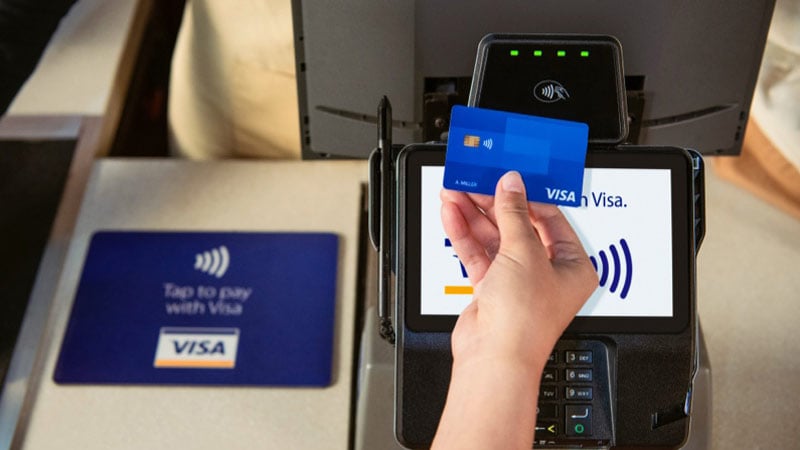Odds are, you have a card or several in your possession with the Visa (V +0.74%) logo on it, and odds are, you've been using them. The company ended its fiscal year on a high note with a revenue beat, and -- icing on the cake for investors -- a 20% dividend hike. In this segment of the Oct. 25 Motley Fool Money podcast, host Chris Hill and analyst Jason Moser weigh in briefly on the company's war-on-cash bona fides, its small-but-smart acquisitions, and its steady growth. But they aren't too Pollyannaish -- they address its regulatory and recessionary risks as well.
To catch full episodes of all The Motley Fool's free podcasts, check out our podcast center. To get started investing, check out our quick-start guide to investing in stocks. A full transcript follows the video.
This video was recorded on Oct. 25, 2019.
Chris Hill: Visa closed out the fiscal year in strong form. Fourth quarter revenue was higher than expected. Jason, Visa also increased its dividend to the tune of 20%.
Jason Moser: Well, steady as she goes, right? I think it is difficult to find the barricades for owning this stock. This was another quarter that reemphasizes that point as far as I can see it. From a numbers perspective, revenue was up 13% for the quarter. They, as you mentioned, raised the dividend 20%. They returned $2.7 billion to shareholders in the quarter in repurchases and dividends. The total transactions number, these are Apple balance sheet style numbers, 36.4 billion total transactions, up 11% from a year ago. Payments volume up 9%. Cross-border up 7%. They continue to make some small bolt-on acquisitions. Remember, we talked about this earlier on in the year, this acquisition of Earthport, which is giving them more exposure to that cross-border payments industry, which is a tremendous opportunity. We're seeing investments from Visa and MasterCard, and even PayPal, for that matter. A lot of reasons to like what's going on with Visa. Obviously, that toll booth model we love so much.
The regulatory risk is always there capping those fees that they might be able to collect. But as we move more and more toward a society that depends less on cash, this is one of the businesses that's poised to win.
Hill: Increasingly, as we look at these companies, and we focus on payment volume, is there any concern that if we do have a recession at some point in 2020, that dramatically scales back for, whether it's Visa and MasterCard, or someone else?
Moser: I think a time ago, perhaps that could be a concern. I think that that volume has gone up considerably in a short period of time. So I think they're able to make up for a little bit on the volume side. But really, that's just where you look to the leaders in the space as the companies that will be more protected. Whether it's Visa or MasterCard, I would even lump PayPal in there at this point as well, they should be well-insulated.






